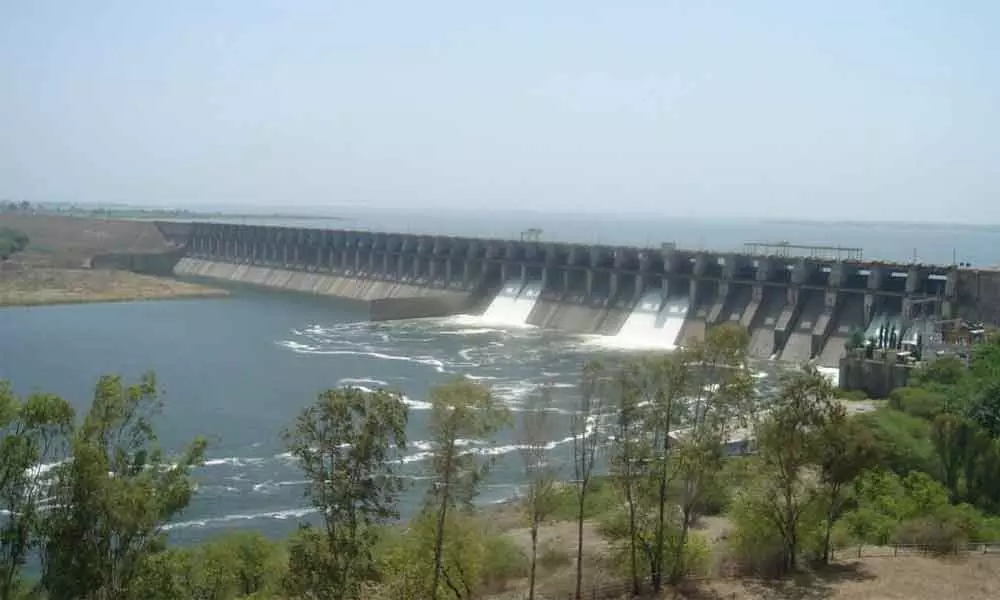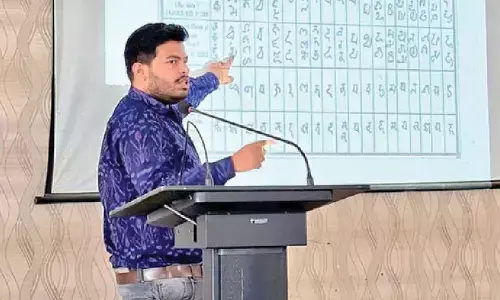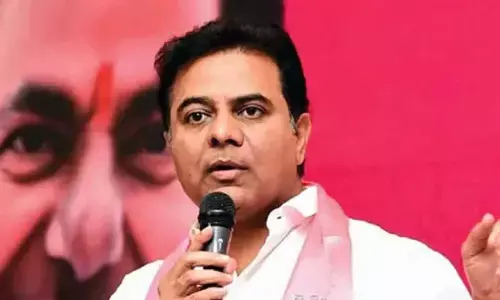Interstate River Water Dispute Bill 2019 : More centralisation of Centre's power

Though water is a State subject, inter-State rivers and river valleys fall under the Union List to ‘the extent to which such regulation and development under the control of the Union, is declared by Parliament by law to the expedient in the public interest’.
Though water is a State subject, inter-State rivers and river valleys fall under the Union List to 'the extent to which such regulation and development under the control of the Union, is declared by Parliament by law to the expedient in the public interest'.
Parliament can make law, but with an objective to expedite dispute resolution. Such a law, the Inter-State River Water Disputes Act 1956 (IRWD) is made, that provides for an aggrieved State to request the Union government to refer a dispute to a tribunal.
This is an anti-federal legislation that places States at the mercy of the Centre, to resolve its dispute with the neighbouring State. It has failed totally in resolving disputes or enforcing the orders of tribunals.
Under the IRWD Act 1956, a State government should beg the Centre to refer an inter-State river dispute to a Tribunal. If the Centre thinks that the dispute cannot be settled through negotiations, it may constitute a Water Disputes Tribunal, within a year after filing complaint.
Our history and experience show that disputes constantly flow along with the rivers and there is a dire need for speedy disposal of those disputes with permanent institutional mechanism.
Since the enactment of the Inter-State Water Disputes Act in 1956, five Inter-State Water Disputes Tribunals have been set up for adjudicating water disputes in respect of the Krishna, the Godavari, the Narmada, the Cauvery and the Ravi-Beas rivers.
These tribunals take decades to resolve the disputes. The Ravi-Beas took 33 years, while Cauvery consumed 29 years. Other tribunals have taken around decade each, though time limit is five years.
The Centre goes on extending term of tribunals indefinitely. Law did not provide any time limit for publishing the report. Within the State of Andhra Pradesh, the people of Telangana were demanding their due share in the Krishna and the Godavari rivers.
This being an intra State conflict, Telangana had no right to demand its due. River water is one of a few grounds for the demand for separate Telangana State.
Tragedy is that if the Centre refuses or delays such reference or does not constitute a tribunal, or tribunal takes decades, or its order is not published, or its published order is not enforced, the State has no remedy at all.
As per the recommendations of the Sarkaria Commission, the Centre introduced Inter-State River Water Dispute (Amendment) Bill, 2019, which proposed to make it mandatory for the Centre to constitute a Tribunal on request or suo moto if it recognised a dispute.
Its suggestion to collect data from States was made mandatory in the Bill.
As per this amendment Bill, when a State refers any water dispute, the Centre shall set up a Disputes Resolution Committee (DRC), to resolve amicably by negotiation in one year.
The DRC will comprise of a chairperson, and experts with at least 15 years of experience in relevant sectors, to be nominated by the Centre. It will also comprise one member from each State (at Joint Secretary level), who are party to the dispute, to be nominated by the concerned State government.
Negotiation can be extended by half a year. If a dispute cannot be settled by the DRC, the Centre must refer it to the Inter-State River Water Disputes Tribunal within three months from the receipt of DRC report.
The added merits are that timelines are prescribed, and a permanent tribunal with multiple benches is proposed be set up dissolving all existing Tribunals will be dissolved.
This Tribunal runs with a chairperson, vice-chairperson, three judicial members, and three expert members, appointed by the Centre on the recommendation of a Selection Committee consisting of Prime Minister, Chief Justice and Ministers.
The Centre may also appoint two experts serving in the Central Water Engineering Service as assessors to advise the Bench in its proceedings. The assessor should not be from the State which is a party to the dispute.
As per the original Act, the Tribunal must give its decision within three years, which may be extended by two years, whereas under the Bill, the Tribunal must give its decision on the dispute within two years, which may be extended by another year.
As per the Act, if the matter is again referred to the Tribunal by a State for further consideration, the Tribunal must submit its report to the Central government within a period of one year. This period also can be extended by the Central government, but such extension cannot go beyond six months.
Under the original Act, the decision of the Tribunal must be published by the Centre in the official gazette, only then it will have same force as that of an order of the Supreme Court. The Bill removes this requirement because tribunals were taking several years to publish.
The Bill adds that the decision of the Bench of the Tribunal will be final and binding on the parties to dispute. The Act provided that the Central government may make a scheme to give effect to the decision of the Tribunal.
The Bill is making it mandatory for the Central government to make such scheme. Under the Act, the Central government maintains a data bank and information system at the national level for each river basin. The Bill provides that the Central government will appoint or authorise an agency to maintain such data bank.
This amendment Bill is a mix of some good provisions which are very much required, and over-centralisation of power. Some States like Tamil Nadu and Odisha have expressed apprehension of appropriation of more powers by the Centre.
If the States do not resolve their disputes amongst themselves, this Bill gives the Centre to take complete control of rivers and their waters. The amendment Bill tries to assure that the decision will bind the parties with the same force as an order of the Supreme Court but does not give any additional binding power.
Because States can take the issue to Supreme Court. If the dispute persists even after order of tribunal, it can be referred for reconsideration. Establishing a multiple bench tribunal simply replaces different tribunals now working separately.
IRWD Act is applicable only to inter-State rivers/river valleys.
Water dispute is deemed to have arisen under IRWD Act (Section 3) when an action of one State should affect the interests of one or more other States.
When there are serious disputes between States on sharing river water, and a permanent set up of inter-State water dispute tribunal is being put in place, why the State having dispute should not be given right to straight away approach the tribunal?
With this change, the Bill proposed the Centre alone will appoint the chairpersons and others in the Tribunal, and generally the former judges and former civil servants will be posted to the DRC and tribunals.
The Centre also retained more power with itself by reserving discretion to refer a dispute requested by aggrieved state or not. This is a big power in the hands of the Centre. With this Bill, the States will be depending on mercy of the Centre totally for even getting the dispute registered and referred.
And there is no remedy available for that State if the Centre arbitrarily denies that request. Once a permanent tribunal is established, every aggrieved State should have a right to submit their dispute with neighbouring State to the Tribunal straight, without the Centre's intervention or approval to refer.
As the Bill provides for appointment of chairman and vice chairman for five years or 70 years of age whichever is earlier, and of members up to 67 years of age, the tribunal will become rendezvous of rehabilitation and will render several judges and officers at their fag end of service to be subservient to the rulers for favour of reappointment in these lucrative positions.
It will corrupt the system and make persons in high office spineless in anticipation. The maximum term or duration of the tribunal chairman and members should not be more than their retirement age. It should be five years or 62 years of age, whichever is earlier.
Only in-service experts from judiciary and administration should be appointed in tribunal with additional incentives. The amendment increases the powers of the centre and makes States totally dependent on the Centre, affecting the sovereignty of States.
It will not reduce the time taken for resolution of disputes or create a strong mechanism to enforce the order of the tribunal.
(The writer is Dean, Bennett University & Former Central Information Commissioner)















